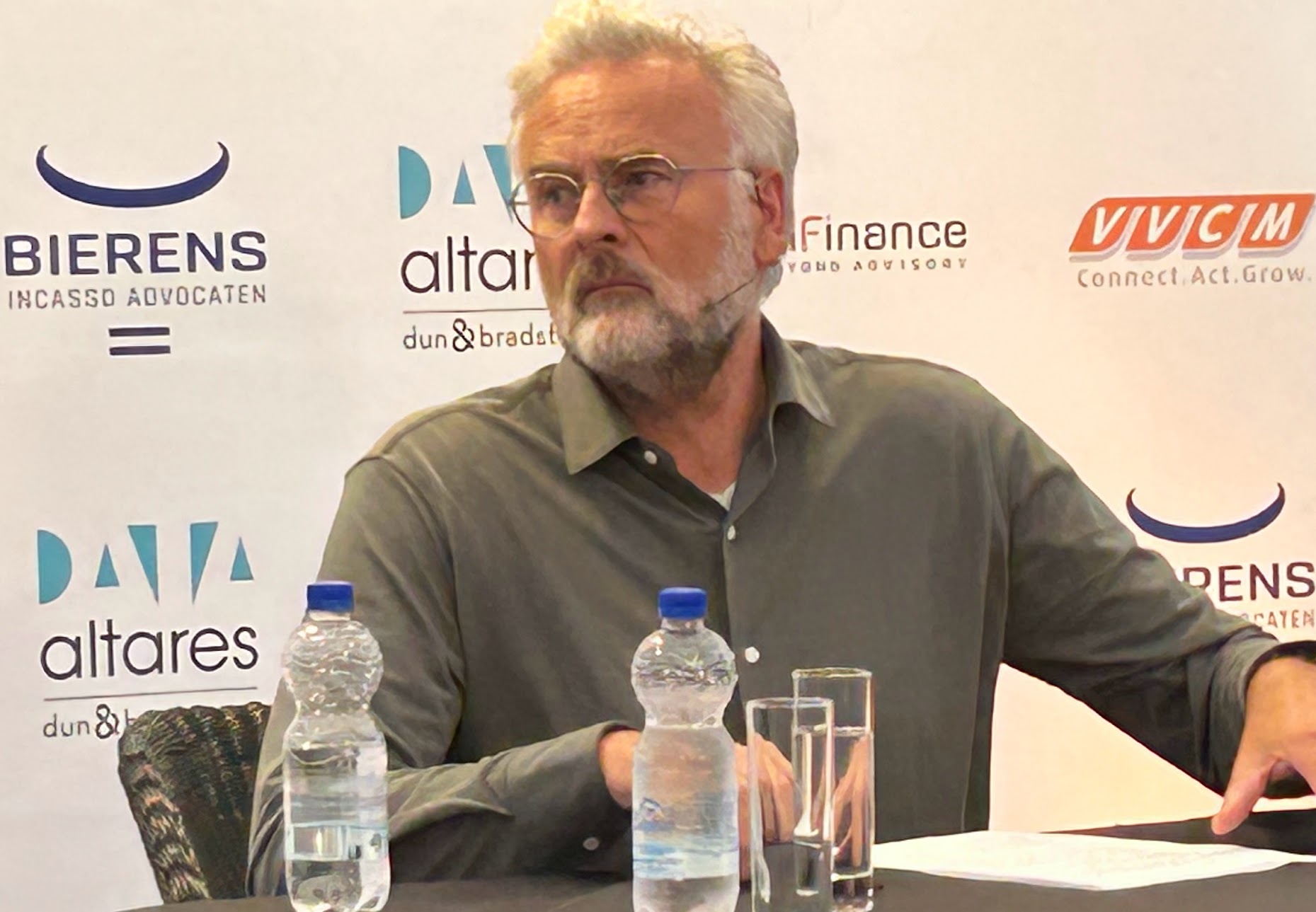An exploration of contemporary challenges: inflation, labor shortages, and the role of technology in the future of healthcare transport.
Bankruptcies, inflation and the unabated demand for healthcare transport are an intriguing observation. The increasing demand for healthcare transport personnel can certainly raise questions about how the sector needs to adapt to remain attractive to younger generations. Young people are often looking for jobs that are meaningful, flexible and sustainable. They want to work in sectors that bring about positive changes in society.
Although the day was marked by continuous rain, the organizers and chairman of the day, Jeroen Smit, managed to keep up the atmosphere and make the event a success.
The Credit Summer Event, recently held in Veghel, focused on the challenges companies are currently experiencing, particularly in the context of inflation and its impact on business, labor market tightness and changes in international trade flows. All this was discussed under the theme 'Triple Threat in Credit Management'.
Despite positive macroeconomic indicators, it warns Social Fund Mobility (SFM) in its annual report that the number of bankruptcies in the taxi industry is likely to rise, largely due to the current inflation and high costs. Henk van Gelderen, the director of the SFM, however, emphasized that the demand for care transport will not decrease. On the contrary, given the growing and aging population, the demand for healthcare transport is expected to increase, leading to a higher demand for staff and drivers in the industry.
Despite challenges such as the aftermath of the corona pandemic, the Russia-Ukraine conflict, the increase in energy tariffs, and rising interest rates, the event was an inspiring gathering for all attendees, thanks in part to the efforts of Jeroen Smith, the chairman of the day.
During the Credit Summer Event, several prominent speakers and experts, such as Han Mesters (sector banker at ABN AMRO), Annemie Pelgrims (TriFinance) and John Lorié (chief economist at Atradius), shared their insights on the current economic situation and its consequences. for companies.
Triple threats
For example, they discussed the effects of high inflation, rising interest rates and tight labor markets. These factors put pressure on companies and can affect their ability to pay off debt and make new investments. These are the 'triple threats' in credit management.
Although the day was marked by continuous rain, the organizers and chairman of the day, Jeroen Smit, managed to keep the atmosphere high and make the event a success. My positive appreciation for the quality of the presentations and the discussions, which are also expected to provide participants with valuable insights and inspiration for dealing with the current economic challenges.
Generation Z
Overall, it seems that despite the turbulent economic situation, there is opportunity and hope. As the Social Fund Mobility indicates, there are growth opportunities in sectors such as healthcare transport, despite the expected rising number of bankruptcies in the taxi sector. This shows that resilience and adaptability are crucial in these uncertain times.
Desire for change tells us more about how young generations view the world and how they are going to change the world. How do you attract young professionals as a company?
Josh Ahlers, author of the book Generation Z, asks an important question in the context of his work on Generation Z, the generation born between the mid-90s to the early 2010s. This generation is now entering the labor market and it is crucial for companies, including those in the transport sector, to understand how to attract and retain these young professionals.
environmental issues
Generation Z cares deeply about environmental issues. Transport companies can attract young professionals by investing in environmentally friendly practices and technologies, such as electric vehicles. This up-and-coming generation appreciates diversity en inclusiveness. Companies must commit to diversity and inclusion, both in their workforce and in their policies and culture.
Generation Z appreciates a good work-life balance. Companies should offer flexible work schedules and remote work opportunities where possible. This generation grew up with technology. They expect their workplace to embrace and use technology to increase efficiency and flexibility. Companies need to think about how they can integrate technology into their operations.
It is clear that the tightness of the labor market, especially in certain sectors such as care transport, is an important topic of discussion. Engaging young generations and addressing their needs and expectations is undoubtedly part of the solution. Technology, especially Artificial Intelligence (AI), can certainly play a role in addressing these challenges. Remember, technology in itself is not a panacea.

Credit Summer Event
Altares Dun & Bradstreet, Bierens Debt Collection Lawyers, Trifinance and the Association for Credit Management joined forces for a full-day program with interesting keynotes. The central question was how inflation impacts business.





